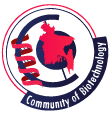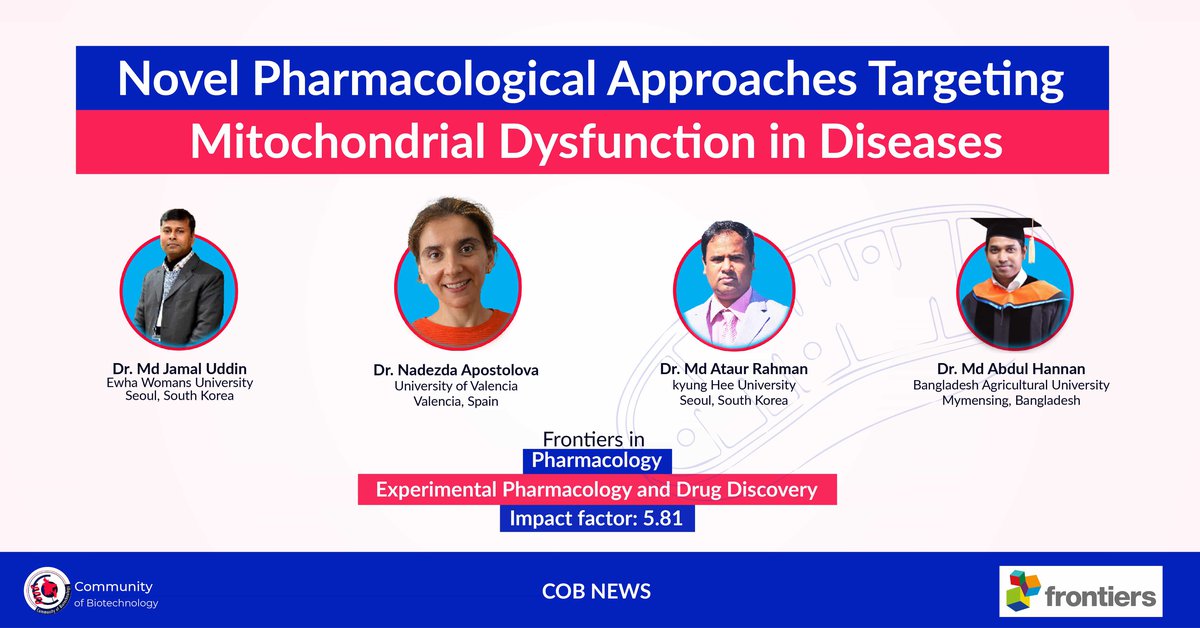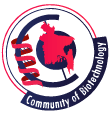The importance of mitochondria in maintenance of homeostasis and as the major energy provider of the cell has been reiterated through years of our education; however, disorders associated with the possible dysfunctionality of mitochondria are much less known. The function and biogenesis of mitochondria are key factors that determine its number, site and morphology. Therefore, any change in these two factors can also bring about a variety of pathobiological consequences like hypertension, diabetes, kidney diseases, brain or cardiac disorders, lung or liver dysfunction, insulin resistance, obesity and even cancer. Major determinants of mitochondrial dysfunction include redox imbalance, disproportion of mitochondrial fission and fusion, aberrant mitochondrial DNA and dysregulated mitophagy. Novel pharmacological approaches aimed towards these factors may assist in development of treatment of the aforementioned diseases, by alleviating mitochondrial function.
Therefore, article topics emphasizing on mtDNA damage, mitochondrial oxidative stress and/ or mitochondrial dynamics are highly encouraged. Other subtopics may include novel targets and signaling pathways aimed towards balancing the mitochondrial dysfunction, specialized imaging techniques that may be used to detect markers and also modern pharmacological interventions. It is to be noted that submissions ranging in the form of original research, review article, mini-review article, commentary or opinion articles (except clinical report and meta-analysis) will be supported.
Introduction to the Editors:
The editing panel comprises of highly scholar, veterans who specialize in related avenues.
Dr. Md Jamal Uddin: Currently Dr. Uddin is working as a Research Professor at Ewha Womans University, South Korea. His ongoing project at the university is centered around molecular mechanisms involved with various diseases and therapeutic strategies. Dr. Uddin’s other areas of expertise are biotechnology, biomedical sciences, molecular immunology, pharmacology and reproductive biology. Alongside, he is also a Founder and Co-Editor-in-Chief of Journal of Advanced Biotechnology and Experimental Therapeutics (Scopus Index). Other present affiliation includes ABEx Bio-Research Center, where he is positioned as CEO.
Dr. Nadezda Apostolova: She is currently an associate professor at the University of Valencia, Spain, where she was a postdoctoral researcher previously. Her areas of expertise include cell biology, biochemistry and molecular biology with further additional industry experience.
Dr. Md Ataur Rahman: At present a post-doctorate researcher in the Department of Pathology, Kyung Hee University, South Korea. His research expertise enlists neurogenerative diseases, cancer, apoptosis and autophagy. Apart from that he also has previous work experience in cellular and molecular biological techniques with natural products and anti-cancer drug development of neuroblastoma in autophagy and apoptosis signaling.
Dr. Md Abdul Hannan: Currently a professor at the Bangladesh Agricultural University. His research interests include natural product research, phytomedicine, neuropharmacology, network pharmacology and marine bioactive research.
About the Journal
Frontiers presents a wide array of peer-reviewed research articles that are accessible to its readers free of charge. With around 20,000 research topics as of 2021 Frontiers covers a diverse range of subjects, keeping the readers updated with latest research findings, at the same time paving a path for young researchers to engage as reviewers and editors. 2021, impact metrics of Frontiers describes it to be the 3rd most cited publisher, with 2.2 million article citations and also 46 journals with a Journal Impact Factor and 57 with a CiteScore.
The participating journal for the proposed research topic is titled Frontiers in Pharmacology: Experimental Pharmacology and drug Discovery, which holds an Impact factor of 5.810 and CiteScore evaluation of 6.2. The journal’s goal is to endorse research articles related to drug discovery and its effects on the metabolism. Experimental Pharmacology and Drug discovery mainly emphasizes on pharmacological research of new agents, newly discovered pharmacodynamic and pharmacokinetic mechanisms that helps to understand the course of action of already existing drugs or facilitates the development of potential drugs.
As an aspiring researcher of the scientific community, getting familiarized with available literature and participating as an author for scientific articles can often be the first step. Therefore, encouraging all young members of the community to be a part of the development of newer therapeutic strategies that may turn out to be another scientific breakthrough! Click/Tap to submit your article!





0 comments